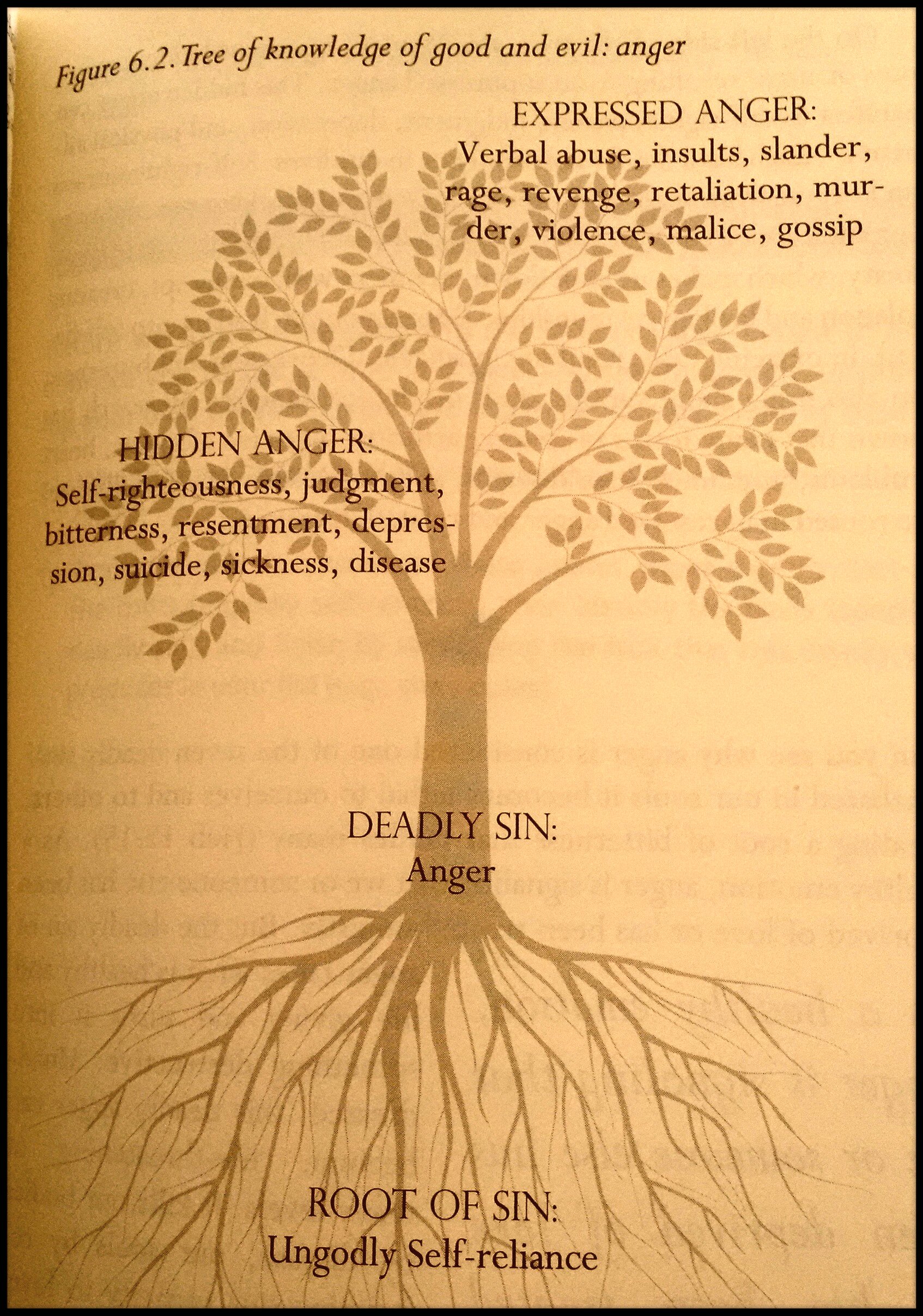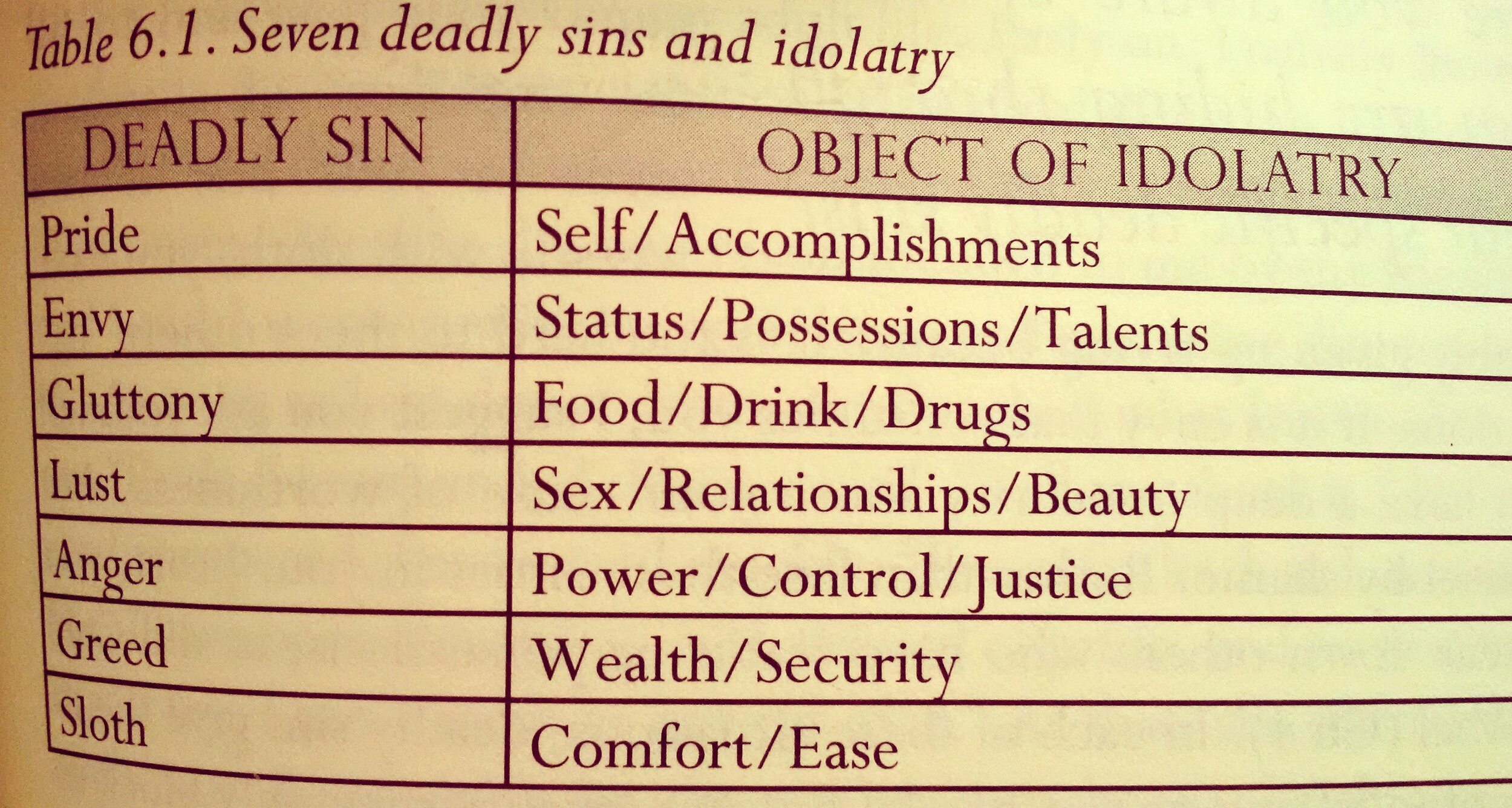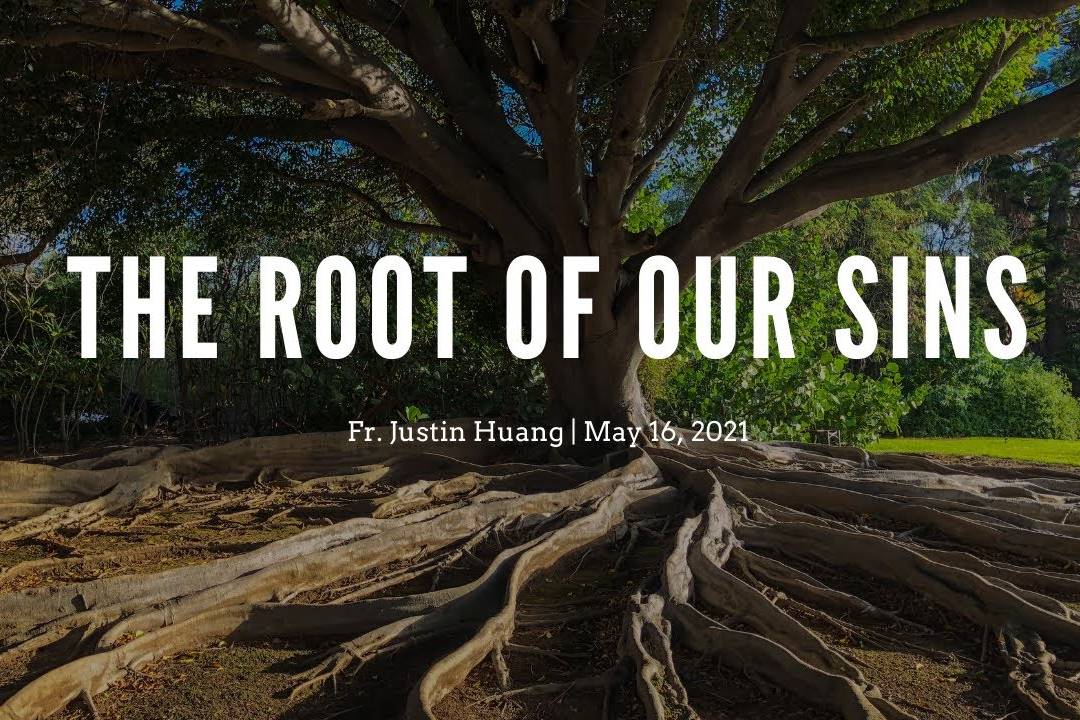 Acts 1:1-11
Acts 1:1-11
 Ephesians 1:17-23
Ephesians 1:17-23
 Mark 16:15-20
Mark 16:15-20
A famous priest, Fr. Mark Toups, teaches about spiritual healing using an apple and a potted tree. He says to his students, “Suppose this apple is your sin. Every time you come to the Sacrament of Reconciliation, you bring in more apples… This is a good thing, as you are receiving absolution. But these sins are symptoms of a deeper soul disease (the tree). What happens if you pick an apple off a tree?” People answer, “More grow back.” “So how many apples have to be pulled off the tree before the apples are completely gone?” “All of them.” “How long will the apples be gone?” “Till more grow back.” “How do you get rid of the apples for good?” Cut down the tree, or, “pull the entire tree up from its roots” (Bob Schuchts, Be Healed, 87-88).
[Watch Fr. Justin’s homily delivery here.]
We have an opportunity this week to get to the root of our sins. For those of us doing the consecration through St. Joseph, this is our second week and it’s entitled, “Casting off the spirit of the world.” Each day deals with one of the seven deadly sins and an opposite virtue. Now, in the Second Reading we can see a context for this growth. First, we see God the Father’s vision for us: “The gifts he gave were… for building up the body of Christ, until all of us come to the unity of the faith and of the knowledge of the Son of God, to maturity, to the measure of the full stature of Christ” (Eph 4:11-13). That’s a wonderful calling: the human person is meant to mature, and to be spiritually mature means to resemble Jesus Christ, to think, speak, act like He does. What would it take for us to reach the ‘full stature of Christ’? Let’s not dilute what God created us to be: We start with being Christlike, in the sense of trying to resemble Christ, but we’re meant to grow to heroic virtue and a martyrdom of spirit, meaning to die to sin so that we can be alive to God.
Second, St. Paul tells the Ephesians to live up to this calling “with all humility and gentleness, with patience, bearing with one another in love, making every effort to maintain the unity of the Spirit in the bond of peace” (Eph 4:2-3). The Greek word for ‘humility’ here literally means to think of oneself as low, insignificant, or poor. This is important when trying to mature, because it’s the Holy Spirit, not we, who ultimately heals us of our sins.
‘Gentleness’ “does not mean being soft or weak. Aristotle described this virtue as the desired middle ground ‘between being too angry and never being angry at all’” (Peter S. Williamson, Ephesians in Catholic Commentary on Sacred Scripture, 109). This balance in virtue is part of maturity. Is anger a sin? Only unjust anger is. But we all need to be able to get justly angry when necessary, as Christ did.
‘Patience’ is necessary for spiritual growth because spiritual growth is organic, and organic growth takes time. All of us will receive graces this week, but be patient, because it will take time to get rid of the root of our sins.
Finally, ‘making every effort’ reminds us that we have to do our part! Spiritual growth is accomplished by the Holy Spirit, but prayer and love, and doing the journaling this week can be hard work—don’t skip it!
With this context, let’s now try to understand the root of our sins. Dr. Bob Schuchts, a medical doctor and spiritual author who has helped thousands of people, uses this diagram as an example of the root of sin:

At the top we see Expressed Anger. We’re aware of our insults, malice, gossip, etc. Below that we see Hidden Anger, of which we’re less aware: self-righteousness, judgment, bitterness, resentment. Beneath this is the deadly sin of anger, and the root of it is ungodly self-reliance. Ungodly self-reliance means we are reliant, but without any dependence on God. Instead of worshipping Him, we worship ourselves—a form of idolatry. We must be self-reliant in a godly way. Saints always pushed themselves to the limit, but they recognized that their abilities came from God, and that most factors were beyond their control. So, they did their part, while depending on God.
Dr. Schuchts states each deadly sin has a particular object of idolatry, shown here:

Start reflecting on what may be your particular struggles.
Dr. Schuchts explains his own: “Pride… has motivated me in many ways throughout my life. I first became aware of it in my teenage years, after Dad left and I began to hide my brokenness behind various accomplishments. My pride may have looked like an abundance of self-confidence but it actually served as a remedy for my pervasive self-doubt. It became a way of hiding my feelings of shame and inadequacy. The more inadequate I felt, the more I compensated by elevating myself and idolizing myself in my accomplishments” (95). He felt great healing when, during a retreat, he realized that, even though his father had left him, God the Father still loved him, and could be trusted, and so he didn’t have to earn the Father’s love with his accomplishments.
That’s what a healthy tree looks like!

In this diagram we have security at its root, which grows into maturity, and blossoms in purity. When we have healthy relationships with our parents and most especially God the Father, then we feel rooted in love; we’re secure. But, if we’ve experienced conditional love from our parents and have never known the acceptance and affirmation of God the Father, then we’re insecure.
At the basis of all healing is the reality and experience that God loves and delights in us. Secure in that love, we want to better ourselves to return love to Him—that’s maturity. And then our thoughts and actions are pure and loving.
There’s so much more to be said about this topic, but this week, our simple spiritual goal is to do the reflection questions in the consecration book, get to the root of our sins, and then, most importantly, talk to St. Joseph about our struggles. Ask him to help you, especially to give you security.
To finish off, here are five simple examples of how security overcomes our sins.
1) One time I was having lunch with a friend but noticed he wasn’t eating. When I asked him about this, he said, “I just had the most amazing spiritual direction, and I don’t feel like eating.” I smiled because he was so satisfied on a spiritual level that he felt no physical hunger. There are moments when, if we’re emotionally satisfied, we don’t overeat.
2) Have you ever had a special birthday, when everyone’s so kind to you? I have. Can you think back to that day and remember how special you felt? I’ve seen many people have days when they’re reminded how special they are, and, because of that, they feel no envy.
3) Dr. Schuchts tells a story about John who “struggled with an underlying sense of shame,” due to his addiction to alcohol, drugs, and pornography since the age of twelve. However, through a powerful retreat experience, daily Mass, Confession, fasting, and counselling, he came to realize his sense of abandonment by his mother when he was very young. But, during a time of prayer with Dr. Schuchts, he saw Jesus pick him up as a child, and this love and peace gave him new life (107-111).
4) My father overcame his explosive anger later in life, because he was more secure in who God called him to be, he was more secure in the contributions he made to his family, that he was making a difference, and so he didn’t need to defend himself against the little difficulties of life.
5) In terms of greed, I’ve known people who focus excessively on buying things and having the best things, and they overindulge their children, mainly because, after self-reflection, they realize that they grew up poor, and can’t face that insecurity. Over time, as their hearts focus more on eternity and they see how the Father provides for them, their focus changes, and they start giving more than spending.
St. Paul writes in the Second Reading, “When [Christ] ascended on high he made captivity itself a captive; he gave gifts to his people” (Eph 4:8). And so Jesus is already setting us free from our captivity. We just cooperate with Him, do our part, and He’ll root out our sins.
